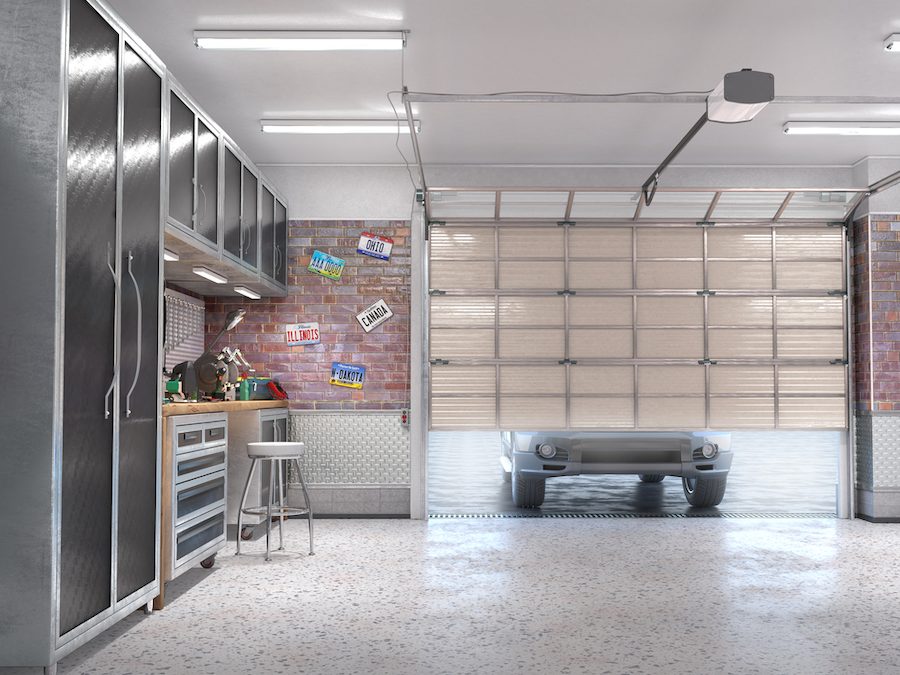As homeowners, we often use our garages as additional storage spaces. However, not all items are suitable for garage storage due to temperature fluctuations, humidity, and potential pest issues. As a garage cooling fan manufacturer, we understand the importance of maintaining a suitable environment for your possessions. In this blog post, we’ll discuss what items are safe to store in a garage and which ones toavoid keeping storing there.
What Is Okay To Store In A Garage?
There are several items that can be safely stored in a garage without the risk of damage or degradation. These include:
- Tools and equipment: Power tools, hand tools, and gardening equipment are typically designed to withstand temperature fluctuations and humidity.
- Outdoor gear: Camping gear, bicycles, and sports equipment can usually be stored in a garage without any issues.
- Car accessories: Spare tires, car care products, and other automotive accessories can be stored in a garage, as they are intended for outdoor use.
- Seasonal decorations: Christmas and Halloween decorations, for example, can be stored in a garage, as they are only used for a short period each year and are often made from durable materials.
Is It RecommTo Leave Furniture In A Garage?
Storing furniture in a garage is generally not recommended due to the potential for temperature fluctuations, humidity, and pests, which can damage or ruin your furniture. Wood can warp, crack, or become infested with termites, while upholstery and fabrics can become moldy or attract rodents and other pests.
What Should I Not Store In My Garage?
There are several items that should not be stored in a garage to protect their quality and safety. These include:
- Clothing and textiles: Fabrics can absorb moisture from the air, leading to mold and mildew growth. Additionally, clothing can attract rodents that may chew on the material or use it for nesting.
- Important documents: Paper can be easily damaged by moisture and fluctuating temperatures, making a garage an unsuitable storage location for important documents such as birth certificates, passports, and legal papers.
- Artwork: Temperature and humidity changes can cause damage to paintings, prints, and sculptures, so it’s best to store your valuable artwork in a climate-controlled environment.
- Electronics: Storing electronics in a garage can lead to corrosion, short-circuiting, and other damage due to humidity and temperature changes.
What Can’t Be Stored In A Garage?
In addition to the items mentioned above, there are some items that should never be stored in a garage for safety reasons:
- Flammable materials: Storing gasoline, propane, paint thinner, or other flammable materials in a garage can pose a serious fire hazard. Always store these items in a dedicated, well-ventilated storage area.
- Food: Storing food in a garage can attract pests, such as rodents and insects, and can spoil due to temperature fluctuations. Keep food in a cool, dry place inside your home.
- Pesticides and chemicals: Storing hazardous materials, such as pesticides and chemicals, in a garage can be dangerous if not properly contained and stored. Always follow the manufacturer’s storage recommendations and keep these items out of reach of children and pets.
Keep Your Garage Safe, Cool, And Ventilated
While garages can be convenient storage spaces, it’s important to be mindful of the items you store in them to prevent damage or safety hazards. By understanding what items are suitable for garage storage and which ones should be avoided, you can protect your belongings and maintain a safe environment. Consider investing in a garage cooling fan to help regulate temperature and humidity levels, ensuring a more suitable storage environment for your possessions.
Shop our Garage Fans and Vents to keep your garage cool this summer. Visit Cool My Garage for garage cooling solutions.

